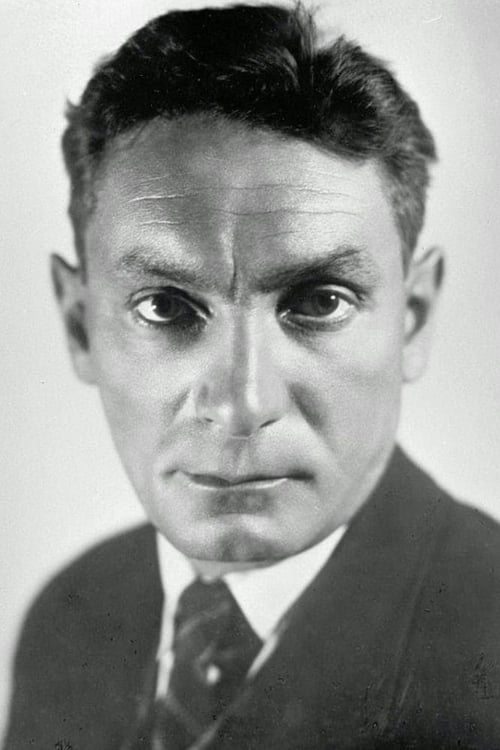Vsevolod Pudovkin
Birth : 1893-02-16, Penza, Russian Empire (Russia)
Death : 1953-06-30
History
From Wikipedia, the free encyclopedia
Vsevolod Illarionovich Pudovkin was a Russian and Soviet film director, screenwriter and actor who developed influential theories of montage. Pudovkin's masterpieces are often contrasted with those of his contemporary Sergei Eisenstein, but whereas Eisenstein utilized montage to glorify the power of the masses, Pudovkin preferred to concentrate on the courage and resilience of individuals. He was granted the title of People's Artist of the USSR in 1948.
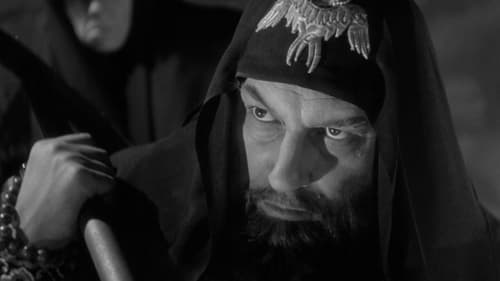
Nikolay the Fanatic
This is the second part of a projected three-part epic biopic of Russian Czar Ivan Grozny, undertaken by Soviet film-maker Sergei Eisenstein at the behest of Josef Stalin. Production of the epic was stopped before the third part could be filmed, due to producer dissatisfaction with Eisenstein's introducing forbidden experimental filming techniques into the material, more evident in this part than the first part. As it was, this second part was banned from showings until after the deaths of both Eisenstein and Stalin, and a change of attitude by the subsequent heads of the Soviet government. In this part, as Ivan the Terrible attempts to consolidate his power by establishing a personal army, his political rivals, the Russian boyars, plot to assassinate him.
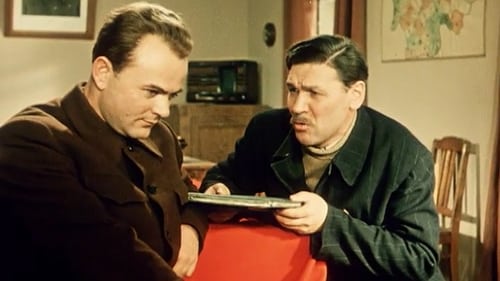
Director
Originally titled Vozvrachenia Vassilya Bortnikov, Vassili's Return was the last directorial effort by the great V.I. Pudovkin, who died in June of 1953. Like many of Pudovkin's later works, the film was diluted by interference from communist party officials; what remains, however, is well worth having, if miles removed from the brilliance of his earlier Mother, End of St. Petersburg and Storm over Asia. Based on a novel by G. Nikolayeva, the story centers upon a Russian named Vassili (Serge Lukynaov), who leaves his wife to do battle against the Germans in WW II. When Vassili is reported to have been killed in battle, his wife Avodtya (Natalya Medvedeva) marries another man. Per the film's title, Vassili returns, only to find his wife ostensibly out of his reach. Vassili and his former spouse eventually reunite as friends if not lovers, working side by side on a state-approved collective farm.

Director
A biographical film about the fate of the great Russian mechanic and creator of aerodynamics Nikolai Egorovich Zhukovsky.

Director

Prince Menshikov
A biography of a famous Russian Admiral Pavel Stepanovich Nakhimov.

Director
A biography of a famous Russian Admiral Pavel Stepanovich Nakhimov.
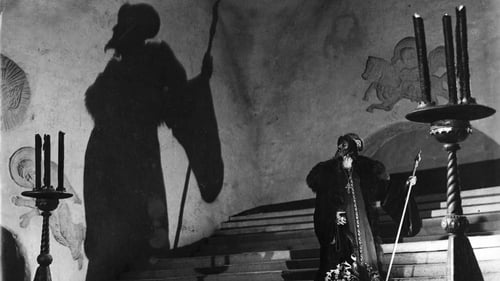
Nikola, Simpleton Beggar
Set during the early part of his reign, Ivan faces betrayal from the aristocracy and even his closest friends as he seeks to unite the Russian people. Sergei Eisenstein's final film, this is the first part of a three-part biopic of Tsar Ivan IV of Russia, which was never completed due to the producer's dissatisfaction with Eisenstein's attempts to use forbidden experimental filming techniques and excessive cost overruns. The second part was completed but not released for a decade after Eisenstein's death and a change of heart in the USSR government toward his work; the third part was only in its earliest stage of filming when shooting was stopped altogether.

Writer
Brecht's play Fear and Misery of the Third Reich consists of a series of playlets, portraying National Socialist Germany of the 1930s as a land of poverty, violence, fear and pretence. Nazi antisemitism is depicted in several of the sketches, including "the Physicist", "Judicial Process", and "the Jewish Wife".

Director
Brecht's play Fear and Misery of the Third Reich consists of a series of playlets, portraying National Socialist Germany of the 1930s as a land of poverty, violence, fear and pretence. Nazi antisemitism is depicted in several of the sketches, including "the Physicist", "Judicial Process", and "the Jewish Wife".
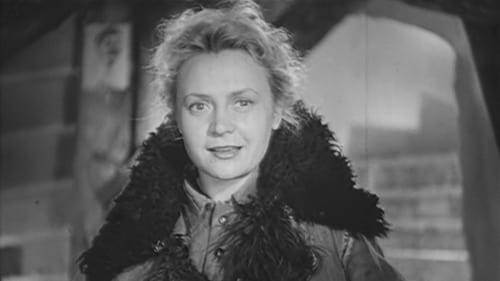
Writer
The film deals with a Russian battalion under siege by the Germans during the Second World War.

Director
The film deals with a Russian battalion under siege by the Germans during the Second World War.

German general
The film deals with a Russian battalion under siege by the Germans during the Second World War.

Director
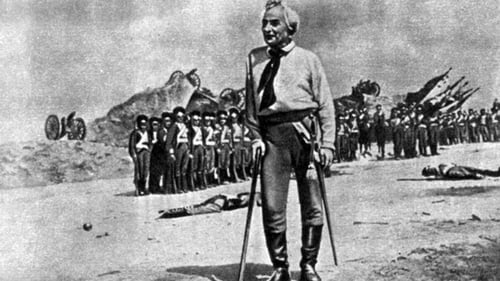
Director
Primarily a biographical documentary about the military career of Alexander Vasilvich Suvorov, who was Field Marshal of the armies of Catherine the Great and Czar Paul I. After many military successes during the reign of Catherine, General Suvorov broke with her successor, Paul I, the Mad Emperor, over questions regarding army policy. He went into retirement and wrote "The Science of Victory," containing maxims such as "Swiftness of movement accompanies victory," and "the real general is he who defeats the enemy before reaching him." The czar recalled Suvorov to become the leader of the joint armies of Russia and Austria against Napoleon.
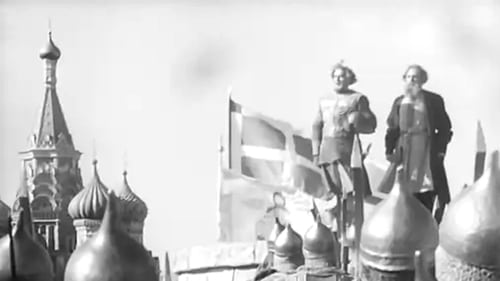
Director

Director

Director
A wise and forgiving communist leader decides to send a young worker, Karl Renn, as an international delegate to the Soviet Union after the worker had deserted a picket-line and had expressed doubts about the methods of class struggle in in his own country.

Director
As a response to criticism for the allegedly excessive “mass appeal” of his earlier epic STORM OVER ASIA (1928), Vsevolod Pudovkin unleashed his flair for experimentation in what was supposed to be the director’s first sound feature. Everything went wrong: technical problems forced him to complete the film as a silent; viewers were baffled by the lack of a recognizable plot; then, the ideological climate of the Soviet Union changed. He was now being blamed for catering to bourgeois taste! Time has come to set the record straight. Here’s lyrical cinema at its best, deliberately operatic and yet intimate as it matches the characters’ inner life with the solemn rhythms of nature, and depicted through breathtaking black-and-white photography. A sensation at last year’s Pordenone fest, Pudovkin’s long-forgotten swan song to the art of montage is resurrected by Gabriel Thibaudeau’s emotionally charged live music performance. –PCU (USSR, 1930, 75m)
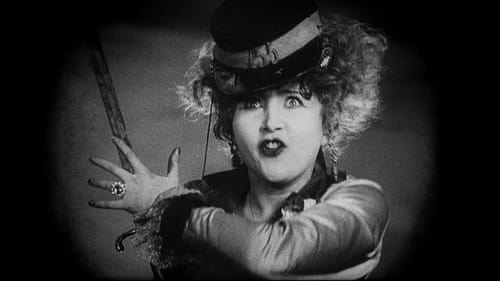
Police intendent
In the short-lived Commune of Paris, a conscripted soldier falls in love with a Communard saleswoman. As the army cracks down on the revolutionaries, the soldier is forced to fight against the Commune, and the pair's love is put to the test.

Director
In 1918 a young and simple Mongol herdsman and trapper is cheated out of a valuable fox fur by a European capitalist fur trader. Ostracized from the trading post, he escapes to the hills after brawling with the trader who cheated him. In 1920 he becomes a Soviet partisan, and helps the partisans fight for the Soviets against the occupying British army. However he is captured by the British when they try to requisition cattle from the herdsmen at the same time as the commandant meets with a reincarnated Grand Lama. After the trapper is shot, the army discovers an amulet that suggests he is a direct descendant of Genghis Khan. They find him still alive, so the army restores his health and plans to use him as the head of a puppet regime. The trapper is thus thrust into prominence as he is placed in charge of the puppet government. By the end, however, the "puppet" turns against his masters in an outburst of fury.

German Officer
A peasant in rural Russia comes to St. Petersburg to escape absolute poverty and find work at the outbreak of the First World War. He comes to stay with his friend, a Bolshevik worker who has organized a strike at his factory. The peasant betrays his friend to the factory's greedy management, leading to the arrest of the striker. Feeling remorseful at his actions, the peasant attempts to plead for his friend’s freedom, but the situation escalates and he is imprisoned without trial and sent to fight in the war. After returning from the front, the peasant joins the revolutionary fight along with the Bolshevik worker.

Director
A peasant in rural Russia comes to St. Petersburg to escape absolute poverty and find work at the outbreak of the First World War. He comes to stay with his friend, a Bolshevik worker who has organized a strike at his factory. The peasant betrays his friend to the factory's greedy management, leading to the arrest of the striker. Feeling remorseful at his actions, the peasant attempts to plead for his friend’s freedom, but the situation escalates and he is imprisoned without trial and sent to fight in the war. After returning from the front, the peasant joins the revolutionary fight along with the Bolshevik worker.

Director
"Though not given a New York showing until 1935, V. I. Pudovkin's Mechanics of the Brain (Mekhanika Golovnovo Mozga) was written and directed by Pudovkin in 1926. A full year in the making, this scientific documentary concentrates on the behavioral studies conducted by Prof. Ivan Pavlov. The laboratory dogs used in Pavlov's research don't seem too happy about it, and as a result this film might be hard to take for the more sensitive viewers (the vivisection sequence is particularly rough). The progress of the research is detailed with charts and graphs, hardly the "cinematic" touches one might expect from Pudovkin. Interestingly, Mechanics of the Brains was released two years before the results of Pavlov's studies were printed in book form."
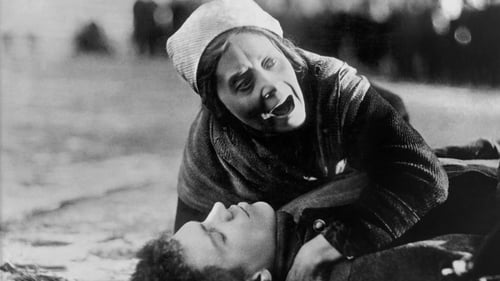
Police Officer
A story about a Russian family torn apart by a worker's strike. At first, the mother wants to protect her family from the troublemakers, but eventually she realizes that her son is right and the workers should strike.

Director
A story about a Russian family torn apart by a worker's strike. At first, the mother wants to protect her family from the troublemakers, but eventually she realizes that her son is right and the workers should strike.

Editor
With an international chess tournament in progress, a young man becomes completely obsessed with the game. His fiancée has no interest in it, and becomes frustrated and depressed by his neglect of her, but wherever she goes she finds that she cannot escape chess. On the brink of giving up, she meets the world champion, Capablanca himself, with interesting results.

Director
With an international chess tournament in progress, a young man becomes completely obsessed with the game. His fiancée has no interest in it, and becomes frustrated and depressed by his neglect of her, but wherever she goes she finds that she cannot escape chess. On the brink of giving up, she meets the world champion, Capablanca himself, with interesting results.

In a capitalist country, workers are heavily repressed but manage to get a "death ray" to fight back. (A part of the movie is lost.)

Art Direction
In a capitalist country, workers are heavily repressed but manage to get a "death ray" to fight back. (A part of the movie is lost.)

Assistant Director
In a capitalist country, workers are heavily repressed but manage to get a "death ray" to fight back. (A part of the movie is lost.)

Writer
In a capitalist country, workers are heavily repressed but manage to get a "death ray" to fight back. (A part of the movie is lost.)

Art Direction
Mr. West and his faithful bodyguard Jeddie visit the land of the 'evil' Bolsheviks. Through various mishaps, Mr. West discovers that the Soviets are actually quite remarkable people.

Writer
Mr. West and his faithful bodyguard Jeddie visit the land of the 'evil' Bolsheviks. Through various mishaps, Mr. West discovers that the Soviets are actually quite remarkable people.

Shban
Mr. West and his faithful bodyguard Jeddie visit the land of the 'evil' Bolsheviks. Through various mishaps, Mr. West discovers that the Soviets are actually quite remarkable people.

A down on his luck peasant goes to fight in World War I and returns home a hero
